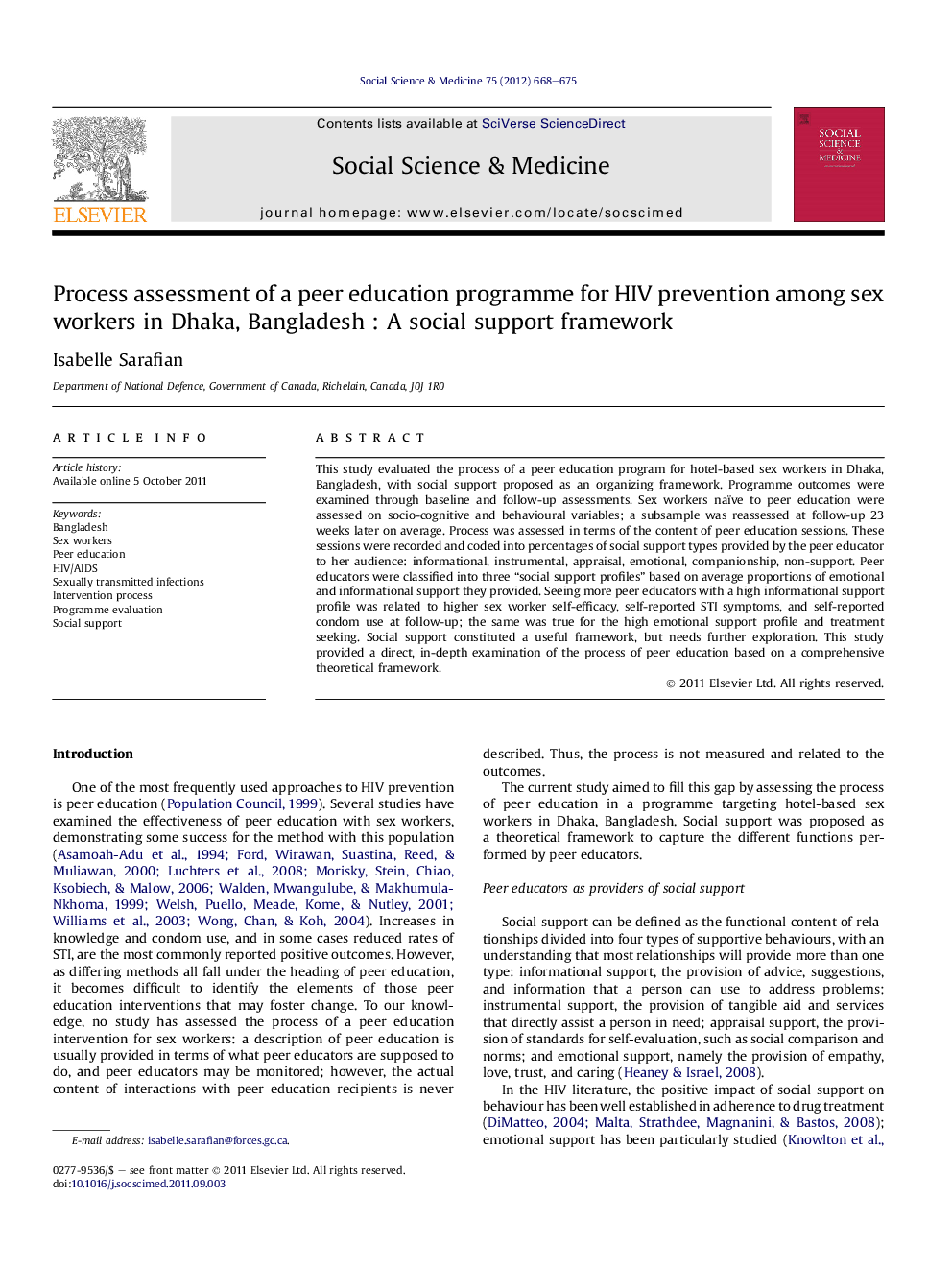| Article ID | Journal | Published Year | Pages | File Type |
|---|---|---|---|---|
| 952422 | Social Science & Medicine | 2012 | 8 Pages |
This study evaluated the process of a peer education program for hotel-based sex workers in Dhaka, Bangladesh, with social support proposed as an organizing framework. Programme outcomes were examined through baseline and follow-up assessments. Sex workers naïve to peer education were assessed on socio-cognitive and behavioural variables; a subsample was reassessed at follow-up 23 weeks later on average. Process was assessed in terms of the content of peer education sessions. These sessions were recorded and coded into percentages of social support types provided by the peer educator to her audience: informational, instrumental, appraisal, emotional, companionship, non-support. Peer educators were classified into three “social support profiles” based on average proportions of emotional and informational support they provided. Seeing more peer educators with a high informational support profile was related to higher sex worker self-efficacy, self-reported STI symptoms, and self-reported condom use at follow-up; the same was true for the high emotional support profile and treatment seeking. Social support constituted a useful framework, but needs further exploration. This study provided a direct, in-depth examination of the process of peer education based on a comprehensive theoretical framework.
► This study directly recorded and analysed peer education sessions. ► Social support was used as a framework to understand processes of change. ► Receiving different support types was related to different outcomes in sex workers.
